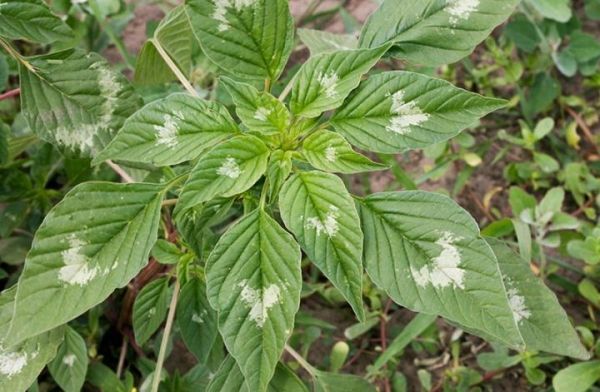Waterhemp and Palmer amaranth, two aggressive weeds that threaten the food supply in North America, are increasingly hard to kill with commercially available herbicides. A novel approach known as genetic control could one day reduce the need for these chemicals. Now, scientists are one step closer.
In a study published today in Weed Science, researchers from the University of Illinois identified genetic signatures that distinguish male waterhemp and Palmer amaranth plants from females. The discovery is a crucial part of developing a genetic control system for the damaging weeds.
The researchers’ goal is to one day introduce genetically modified male plants into a population to mate with wild females. Modified male plants would contain a gene drive, a segment of DNA coding for maleness, which would be passed on to all its offspring, and their offspring, and so on. Ultimately, all plants in a given population would become male, reproduction would cease, and populations would crash.
It’s a controversial strategy, but Pat Tranel, the U of I scientist leading the project, says they’re still in the very early stages.
Read more at University of Illinois College of Agricultural, Consumer and Environmental Sciences
Image: Identification of gene regions controlling maleness in waterhemp and Palmer amaranth may one day lead to novel genetic control methods for the troublesome weeds, according to a new study from the University of Illinois. (Credit: Lauren D. Quinn, University of Illinois)


